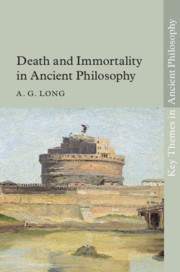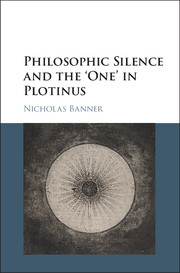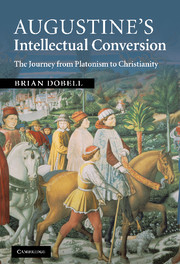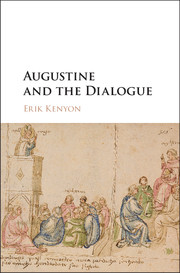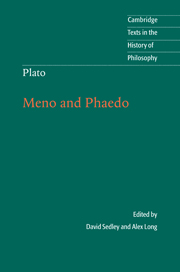Death and Immortality in Ancient Philosophy
Death and immortality played a central role in Greek and Roman thought, from Homer and early Greek philosophy to Marcus Aurelius. In this book A. G. Long explains the significance of death and immortality in ancient ethics, particularly Plato's dialogues, Stoicism and Epicureanism; he also shows how philosophical cosmology and theology caused immortality to be re-imagined. Ancient arguments and theories are related both to the original literary and theological contexts and to contemporary debates on the philosophy of death. The book will be of major interest to scholars and students working on Greek and Roman philosophy, and to those wishing to explore ancient precursors of contemporary debates about death and its outcomes.
- Explores the varied and often subtle conceptions of immortality in Greek and Roman philosophy, from Homer to Stoicism
- Provides an original account of death in Epicureanism and of immortality in the thought of Plato
- The book is accessible and of great interest to upper-level students of ancient philosophy as well as those interested in contemporary debates on death
Product details
July 2019Adobe eBook Reader
9781316998045
0 pages
This ISBN is for an eBook version which is distributed on our behalf by a third party.
Table of Contents
- Introduction
- Part I. Immortality:
- 1. Immortality in early Greek poetry and philosophy
- 2. Platonic immortalities
- 3. Immortality and the ethics of a finite lifespan: Aristotle, early Stoics and Epicureanism
- Part II. Death:
- 4. Death, doubts and scepticism
- 5. Epicurean evaluations of death
- 6. Stoic agnosticism and symmetry arguments
- 7. Suicide, religion and the city
- Conclusion.

